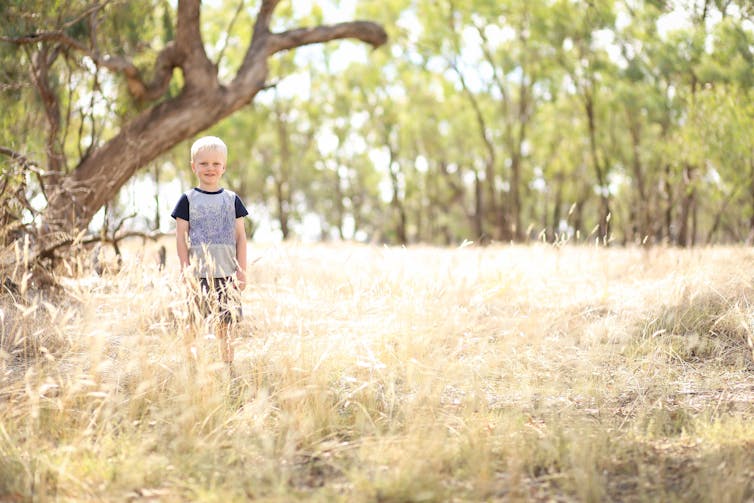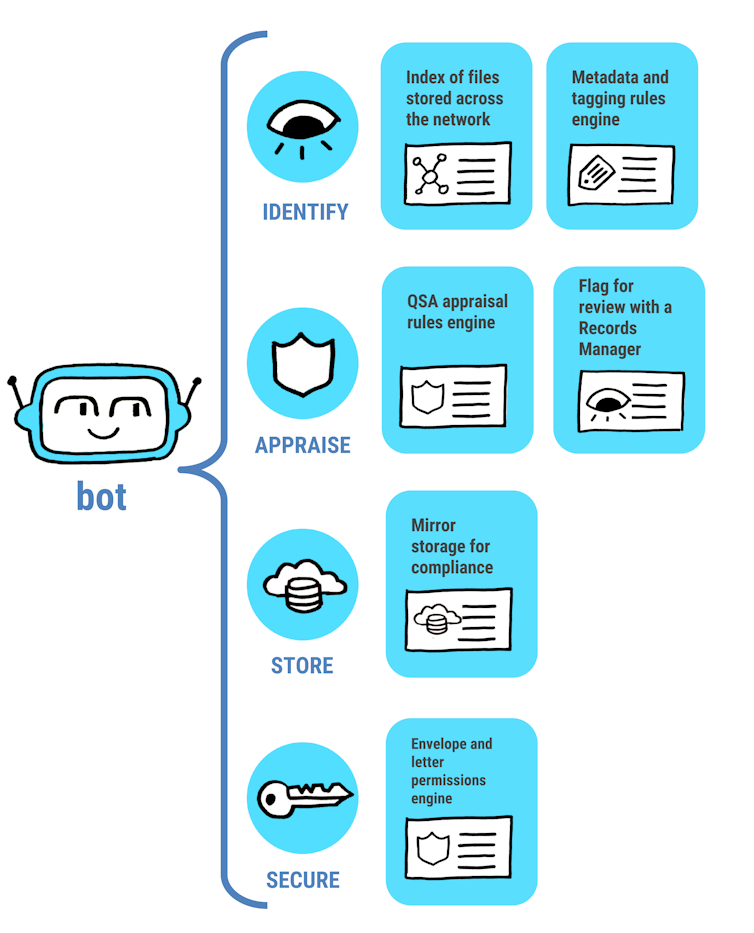Daughter unable to attend school, church; acid thrown on her jacket.
CAIRO, Egypt, May 25 (CDN) — From the mosque across the street, words blasting from minaret megaphones reverberate throughout the tiny apartment where Maher Ahmad El-Mo’otahssem Bellah El-Gohary is forced to hide. Immediately following afternoon prayers, the Friday sermon is, in part, on how to deal with Christians.
“Do not shake their hands. Do not go into their homes. Do not eat their food,” an imam shouts as El-Gohary, a convert to Christianity from Islam, looks through his window toward the mosque, shakes his head and grimaces.
“I hope one day to live in a place where there are no mosques,” he says. “How many megaphones do they need?”
For nearly two years, El-Gohary and his teenage daughter have been living in hiding because he abandoned Islam and embraced Christianity. During this time he has been beaten and forcibly detained, and his daughter has been attacked. He has had to endure death threats, poverty and crushing boredom.
Asked what gets him through the constant pressure of living on the run, El-Gohary said he wants to show the world how Christians are treated in Egypt.
“My main driving force is I want to prove to people the amount of persecution that Muslim converts and Christians face here, and that the persecution has been going on for 1,400 years,” he said.
When asked the same question, his 16-year-old daughter, Dina Maher Ahmad Mo’otahssem, pushed back tears and said one word.
“God.”
Hiding
El-Gohary, 57, and his daughter were forced into hiding shortly after August 2008, when he sued the national government to allow him to change the religion listed on his state-issued ID from Islam to Christianity.
El-Gohary followed in the footsteps of Mohammed Ahmed Hegazy, 27, also a convert from Islam, in filing an ID case because he didn’t want his daughter to be forced to take Islamic education classes or have her declared an “apostate” by Egyptian Islamic authorities if she decided to stay a Christian into adulthood. Dina is required by law to possess an ID card. The ID card is used for everything from opening a bank account to receiving medical care. The identification also determines whether Egyptians are subject to Islamic civil courts.
Dina is the daughter of El-Gohary and his first wife, who is a Muslim. El-Gohary said that before he got married, he told his future wife that one day he would be baptized as a Christian. He said he now thinks she was convinced that he would eventually turn back to Islam. Over time, she grew tired of his refusal go back on his faith and complained to El-Gohary’s family, demanding a divorce.
“She started crying. She went to my parents and my brother and said, ‘This is not going to work out, I thought that he was going to change his mind. I didn’t think he was that serious about it,’” El-Gohary said. “She started talking about it to other people to the point where they started calling me from the loudspeakers of the local mosque, asking me what I was doing and ordering me to come back and pray.”
Eventually El-Gohary married another Muslim, and over the years she became a Christian. She has fled Egypt and lives in the United States; El-Gohary hasn’t seen her since March 2009.
On April 11, 2009, El-Gohary’s lawyers presented a conversion certificate from the Coptic Church in court. He obtained the certificate under court directions after going to Cyprus, at great expense, to obtain a baptismal certificate. The next month, the State Council, a consultative body of Egypt’s Administrative Court, provided the court with a report stating that El-Gohary’s change of faith violated Islamic law. They instructed that he should be subject to the death penalty.
In February 2009, lawyers opposing El-Gohary’s case advocated that he be sentenced to death for apostasy. On June 13, 2009, a Cairo judge rejected El-Gohary’s suit.
On Sept. 17, 2009, authorities at Cairo International Airport seized his passport. He was trying to travel to China with the eventual hope of going to the United States. On March 9, 2010, the Egyptian State Council Court in Giza, an administrative court, refused to return his passport. He has another hearing about the passport on June 29.
“I think it’s a kind of punishment, to set an example to other Muslims who want to convert,” El-Gohary said. “They want me to stay here and suffer to show other converts to be afraid. They are also afraid that if they let me go, then I will get out and start talking about what is happening in Egypt about the persecution and the injustice. We are trapped in our own country without even the rights that animals have.”
Conditions
As recently as last week, El-Gohary and his daughter were living in a small, two-bedroom apartment across the street from a mosque on the outskirts of an undisclosed city in Egypt. The floor was littered with grime and bits of trash. Clumps of dust and used water bottles were everywhere.
El-Gohary had taped over the locks, as well as taped shut the inside of windows and doors, to guard against eavesdroppers and intruders. He had taped over all the drain holes of the sinks to keep anyone from pumping in natural gas at night.
Even the shower drain was taped over.
The yellow walls were faded, scuffed and barren, save for a single picture, a holographic portrait of Jesus, taped up in what qualified as a living room. El-Gohary motioned through a door to a porch outside. Rocks and pebbles thrown by area residents who recently learned that he lived there covered the porch.
“I would open the window, but I don’t want the rocks to start coming in,” he said.
El-Gohary has an old television set and a laptop with limited access to the Internet. Dina said she spends her time reading the Bible, talking to her father or drawing the occasional dress in preparation for obtaining her dream job, designing clothes.
Even the simple task of leaving El-Gohary’s apartment is fraught with risk. Every time he leaves, he places a padlock on the door, wraps it with a small plastic bag and melts the bag to the lock with a match.
El-Gohary cannot work and has to rely on the kindness of other Christians. People bring him food and water and the occasional donation. When the food runs out, he has to brave going outside.
“Our life is extremely, extremely hard. It’s hard for us to attend a church more than once because people will know it is us,” he said. “We can’t go to a supermarket more than once because we are going to be killed.”
Girl, Interrupted
Possibly the worst part for El-Gohary is watching his daughter suffer. A reflective youth with a gentle demeanor, Dina is quick to smile. But at a time when her life should be filled with friends, freedom and self-discovery, she is instead confined between four walls.
Even going to school, normally a simple thing, is fraught with dangerous possibilities. Dina hasn’t gone to school in about a year. She said that the last time she did, other students ridiculed her mercilessly, and a teacher hit her when she tried to attend religious classes for Christians instead of Muslims.
Now she and her father fear she could be beaten, kidnapped and forcibly converted, or simply killed. She can’t even go to church, she said.
“I don’t understand why I am being treated this way,” she said. “I believe in something, Christianity – I chose the religion because I love it. So why should I be treated this way?”
Dina was a little girl when she starting hearing about Jesus. Her father used to sit with her and tell her stories from the Bible, and he also told her about his conversion experience. Like her father, she cites a supernatural experience as a defining event in her faith.
One night, she said, she had a dream in which an enormous image of Jesus smiling appeared in a garden. She said the image became bigger and bigger until it touched the ground and became a golden church. She told her father about the dream, and since then she has believed in Christ.
Under Islamic law, Dina is considered a Muslim because her father was born as one. Because, like her father, Dina has decided to follow Christ, she is considered an “apostate” under most interpretations of Islamic law.
She gained national prominence in November 2009, when she wrote a letter, through a Coptic website, to U.S. President Barack Obama. She told the president that Muslims in the United States are treated much better than Copts in Egypt and asked why this was the case. She hopes the president will pressure the Egyptian government to ensure religious rights or let her and her father immigrate to the United States.
One afternoon last month, Dina was walking to a market with her father. As the two walked, El-Gohary noticed smoke and vapors coming off Dina’s jacket. The canvas was sizzling and dissolving. Someone had poured acid over the jacket. El-Gohary ripped it off her and threw it away.
“I asked people if they saw what happened and everyone said, ‘No, we didn’t see anything,’” El-Gohary said.
Luckily, Dina was not physically injured in the attack, but since then she has been terrified to go outside.
“I am very, very scared,” she said. “I haven’t gone outside since the attack happened.”
Change of Faith
El-Gohary, also known as Peter Athanasius, became a Christian 36 years ago while attending an academy for police trainees. During his second year of school, he became good friends with his roommate, a Copt and the only Christian in the academy. After watching cadets harass his roommate for praying, El-Gohary asked him why the others had ridiculed him.
“For me, it was the first time I had heard something like that,” El-Gohary said. “I didn’t have any Christian friends before, and I didn’t know about the level of persecution that takes place against Christians.”
Eventually, El-Gohary asked his friend for a Bible and took it home. His family tried to dissuade him from reading it.
“No, you can’t read the Bible,” his father told him. “It’s a really bad book.”
Undeterred, El-Gohary began reading the Bible in the privacy of his room. In the beginning, he said, the Bible was difficult to understand. But El-Gohary concentrated his efforts on the New Testament, and for the first time in his life, he said, he felt like God was speaking to him.
El-Gohary read the account of Jesus meeting the woman caught committing adultery, and the level of mercy that Jesus showed her transformed him, he said.
“Jesus said, ‘If anyone among you is without sin, then let him throw the first stone.’ The amount of forgiveness and love in this story really opened my eyes to the nature of Christianity,” El-Gohary said. “The main law that Jesus talked about was loving God ‘with all your heart, soul and mind.’ The basis of Christianity is love and forgiveness, unlike Islam, where it is based on revenge, fighting and war.”
Also, El-Gohary said, when he compared the two religions’ versions of heaven, he found that the Islamic version was about physical pleasure, whereas for Christians it was about being released from the physical world to be with God.
El-Gohary said his decision to follow Christ was final after he had a brilliant vision of light in his bedroom at his parents’ home, accompanied by the presence of “the peace of God.” El-Gohary said at first he thought he was seeing things, but then his father knocked on the door and demanded to know why the light was on. He told his father he was looking for something.
Persecution Begins
As a budding Christian convert, El-Gohary went back to the police academy and learned as much as he could about Christ and the Bible from his roommate. Persecution wasn’t long in coming.
One day an upperclassman spotted El-Gohary absent-mindedly drawing a cross on a notebook. The cadet sent El-Gohary to a superior for questioning.
El-Gohary avoided telling academy officials that his roommate had taught him about Christianity, but a captain at the school was able to piece together the evidence. The captain called El-Gohary’s father, a high-ranking officer at the academy, who in turn told the captain to make the young convert’s life “hell.”
Officials were imaginative in their attempts to break El-Gohary. He had to wake up before all the other students. He was ordered to carry his mattress around buildings and up and down flights of stairs. They exercised El-Gohary until he was about to pass out. Then they forced him to clean bathroom facilities with a toothbrush.
El-Gohary was not swayed from Christ, but he decided he couldn’t stay in what he said is the agency that “is the center of persecution against Christians” in Egypt. He tried numerous times to resign, but officials wouldn’t let him. Then he tried to get kicked out. Eventually, officials suspended the police cadet and sent him home for two weeks. At home, his family had a surprise waiting; they had hired an Islamic scholar to bring him back to Islam.
The scholar started by yelling Islamic teachings into El-Gohary’s ears, then moved on to write Quranic verses on his arms. El-Gohary remained seated and bore the humiliation in silence. Suddenly El-Gohary stood up, pinned the man against a wall and started yelling at him; the convert had caught the distinct smell of burning flesh – when he looked down at his arms, El-Gohary saw the scholar burning his hands with thin, smoldering iron rods.
“I said, ‘Enough! I have tolerated all of your talk. I have listened to all you have said, but this has gone too far,’” El-Gohary recalled. “The man said I had a ‘Christian demon’ inside me.”
Hope
As bad as things have been for El-Gohary and his daughter, their dedication seems rock-solid. They said they have never regretted their decisions to become Christians.
El-Gohary said that eventually, he will triumph.
“By law, my circumstance will have to change,” he said. “I have done nothing illegal.”
Dina is not so sure; she said she doesn’t feel like she has a future in Egypt, and she hopes to move to a place where she can get an education.
Whatever happens, both El-Gohary and his daughter said they are prepared to live in hiding indefinitely.
“There are days that I break down and cry, but I am not giving up,” Dina said. “I am still not going back to Islam.”
Report from Compass Direct News



![]()






You must be logged in to post a comment.